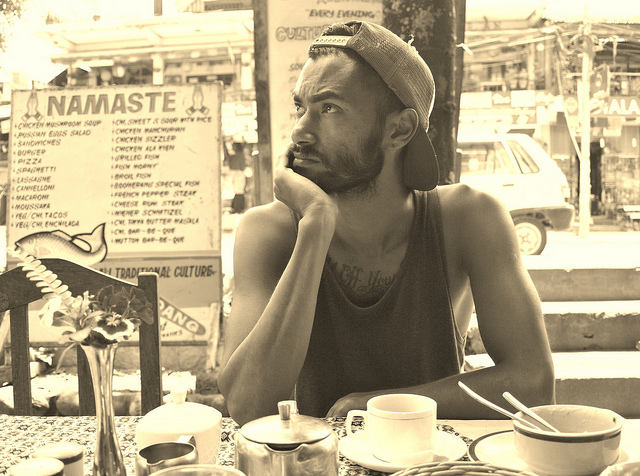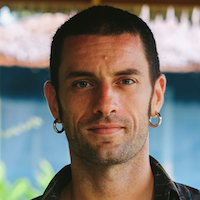What is a “spiritual ego”? You might never have heard about it before, yet it most likely affects you or several of your friends.
Spiritual ego is a phenomenon that may arise in those of us who believe that we are embarked on a journey of self-improvement, evolution, self-realization, or personal growth—which, if you’re reading these lines, you most likely are.
I, for one, am anything but immune from having a spiritual ego. I’ve heard it hiss in my ears so many times though, that I know its old tune a bit better now.
Our spiritual ego involves a sense of pride, of being superior to others, because we feel we have accomplished something special, or attained a knowledge that other people can’t possibly have access to. It places us on a pedestal above others and, most importantly, separated from them. Our spiritual ego ultimately rests on the biggest delusion anyone can entertain—that of being a separate entity, disconnected from his or her fellow human beings and from the universe.
Much has been written on the spiritual ego, but here are a few practical “sanity checks” than can help us determine whether it is singing in our ears, enchanting us with its siren song.
1) Are we able to relate to ordinary people—whatever that means for us?
In practical terms, are we able to talk to the bartender, the neighbor next door, the man or woman sitting next to you on an airplane, and to relate to his or her life and problems with genuine interest? If we feel that we are floating on a cloud high above “normal” people, or we are just completely uninterested in what they have to say, chances are our spiritual ego is deceiving us by making us feel superior to others.
2) Can we play with children?
Can we spend some time in that simple, pure, joyful state that a child almost forces us into? Children have an almost supernatural ability to bring us into the present space and time—there’s no way that we can get lost in the past or future when a child is around and wants to play. If we discover that we are consistently avoiding the company of children because we have “more serious things to attend to,” our spiritual ego might be tricking us into believing that depth equals seriousness.
3) Can we laugh about ourselves, our accomplishments and our failures?
And do we allow others to do the same? Humor is more than just fun: it allows us to zoom out and see the irony inherent in our existences. Humor reminds us that nothing is permanent, and that there’s no reason to take anything too seriously—this whole universe, as the yogic wisdom says, being only lila, play. If we can’t enjoy a good laugh about ourselves every now and then, our spiritual ego might be blinding us by making us believe that what you do is above this big, cosmic joke and that no one has the right to laugh about it.
4) Whatever our creed, religion or spiritual path, are we able to accept other approaches and traditions as equally valid?
If we believe that we have found the truth, or the way to enlightenment, then most likely our spiritual ego is bewildering us. It is not a matter of politeness, but of simple logic: no spiritual book or teaching can express the totality of the truth, because truth is reality, and reality is always bigger than words (of course, this in itself is only a partial truth). All the great spiritual masters have recognized this simple fact, although their disciples have often forgotten it.
5) Are we able to maintain a relaxed attitude towards our habits, including our healthy routines and our spiritual practices?
This means that if, in the ever-changing course of existence, we should find it necessary to radically transform our lifestyle, we would be flexible enough to do that without going mad over it. (A good example is parenting, something that inevitably changes our habits dramatically).
Sometimes, this is one of the ultimate tests of our spiritual ego. We may discover that we are clinging rigidly to our practice of meditation, to our morning rituals, or to our yoga postures. This is usually the sign that our spiritual ego has pushed us into identification with those practices, as if they embodied our true identity instead of just pointing at it.
Obviously, this list is very personal and it could be different for you. Still, keeping clear from the five pitfalls mentioned above is already a good sign that we are not being overly manipulated by our spiritual ego—and that, whatever our stage of evolution and growth, we aren’t on our way to get lost in a delusion of superiority.
Relephant Read:
Spiritual Snobbery: the Dark Side of Lightworkers.
Author: Raffaello Manacorda
Editor: Catherine Monkman
Photo: Taz/Flickr











Read 5 comments and reply